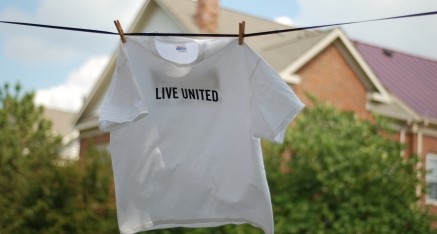Transitioning from Jail to the Community
David S. Benedict
What does an ex-offender do for transportation when released from the Virginia Peninsula Regional Jail when no public bus service runs on that section of Route 143?
For the last 7 years, an independent group of volunteers in Williamsburg have dedicated their time to assisting ex-offenders when they are released. Often, when an ex-offender has no family or support network nearby, they require far more than transportation. They may have no place to stay,f or no means to purchase food and clothing. Many are in dire need of employment.
One of the most basic mentoring functions provided by the Williamsburg Walk the Talk (WWTT) program is picking up an ex-offender the morning of his release and driving him to the local social services department to obtain food stamps, and to the United Way Community Resource office for referrals to local services that can provide clothing, housing medical care and transportation. The mentor then helps the ex-offender make contact with services such as Salvation Army, FISH, Olde Towne Medical Center and the VEC.
In the last few years, mentors have assisted both male and female ex-offenders in getting a new start on life. One female ex-offender was located in a halfway house program for persons subject to addiction in order to successfully transition back into the community. A male ex-offender was mentored over a two-year period, maintaining contact by mail during the final period of incarceration at the Harrisonburg Diversion Center in Northern Virginia. This person made a successful transition back to his previous job in Williamsburg, and remains happily self-sufficient and making a satisfying contribution to the well-being of this community. Because of such success, the mentoring relationship may continue as a supportive friendship.
When the WWTT mentoring program began, there was just an occasional inmate who showed interest in this pre- and post-release program. This past summer, there were more than 50 inmates who expressed an interest in starting a mentoring association with a trained mentor.
Now the program is in need of more trained male and female mentors for those who qualify for release back into the Greater Williamsburg area. The mentoring association is started within the jail and continues for as long as both parties see the process contributing to the ex-offenders transition to a normal and healthy life in their community.
It was an All Together study group in 2004 that caused a few concerned citizens to note that it was a hardship for inmates released from the jail to have to walk more than three miles to the nearest bust stop, in all kinds of weather, without the assurance of any place to sleep, where to eat and without any readily available means of employment. Then it was learned that the Colonial Community Corrections agency of the criminal justice system has a transitions program that does work on connecting ex-offenders with needed resources on their release. So, WWTT has since been partnering with staff at Colonial Community Corrections and the Virginia Peninsula Regional Jail in carrying out this person-to-person program of mentoring.
In 2005, to bring the need for providing this assistance before the public, WWTT conducted a march from the jail to the first available bus stop on Route 143. As a result, the local bus company attempted to start up a route to the jail, but dropped the stop for lack of passengers. The timing wasn’t right given the various times inmates are released. So, WWTT provides individual pick-up assistance the first day of release and ongoing mentoring for dozens of ex-offenders for days and months following their release.

